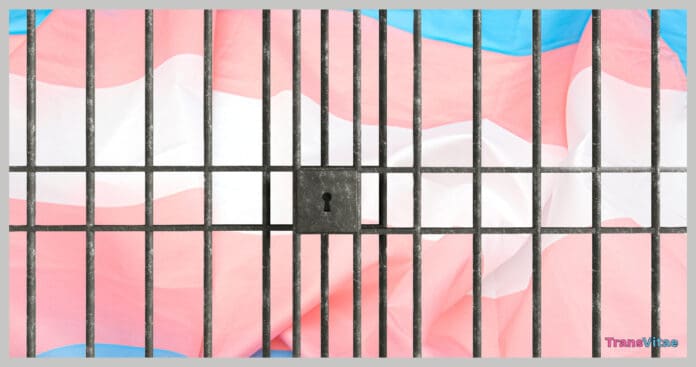The American Civil Liberties Union (ACLU) has filed a class-action lawsuit against several Idaho leaders, including Governor Brad Little and Attorney General Raúl Labrador. The lawsuit, filed on behalf of three incarcerated transgender women, challenges a newly enacted state law that prohibits the use of public funds for gender-affirming care. The ACLU argues that this law constitutes an “across-the-board ban” and violates constitutional rights.
House Bill 668: The Law at the Center of the Lawsuit
In March, Governor Little signed House Bill 668 into law, outlawing the use of public funds for any surgical procedure or medical intervention involving gender transitions. This means that transgender individuals in prison can no longer be prescribed medication or undergo treatments that alter their appearance to align with their gender identity. The law specifically prohibits treatments that change a person’s appearance in a way that is inconsistent with their biological sex. Violations of this law by government employees can result in charges of misusing public funds, punishable by fines up to $10,000 and a maximum of 14 years in prison.
The ACLU’s Legal Argument
In a 21-page complaint filed last month, the ACLU contends that the law denies necessary medical treatment to prisoners experiencing gender dysphoria, thus violating the Eighth Amendment’s prohibition on cruel and unusual punishment. The complaint also highlights that the law disrupts a longstanding internal policy allowing gender-affirming care for transgender inmates.
One of the plaintiffs, using the pseudonym Jane Poe, expressed profound fear and anxiety over the potential cessation of her medication. “If I am cut off on July 1st, I would be scared for myself. I fear I would suffer the same suicidality and severe mental health issues as I did before,” she said in a declaration last month.
Temporary Relief Granted
U.S. District Judge David Nye temporarily barred the state from enforcing the law for the three women, allowing them to continue receiving their medication. This decision, made on July 1, the day the law was set to take effect, was due to the “serious questions” raised by the women’s attorneys concerning the merits of their complaint and the extreme time constraints involved.
Judge Nye emphasized that this provisional pause on enforcement is not a full adjudication of the arguments on the merits. “Today, the Court puts a provisional pause on enforcement (of the law). It does not find it valid. It does not find it invalid,” he wrote.
A hearing is scheduled for Monday to decide whether to enter a formal temporary restraining order, typically lasting two weeks, or a preliminary injunction, which could extend through the lawsuit.
This lawsuit is not Idaho’s first involving transgender prisoners. In 2017, Adree Edmo sued the Idaho Department of Correction (IDOC) and its former medical provider for refusing to provide gender-affirming surgery, alleging cruel and unusual punishment. Despite attempts by Governor Little to appeal federal and appellate court decisions, Edmo received the surgery in 2020, becoming the second person in the U.S. to undergo gender-affirming surgery while in prison.
Broader Implications and Reactions
The lawsuit against Idaho is part of a broader struggle for transgender rights in the U.S. In recent years, many Republican-controlled states have passed laws restricting gender-affirming healthcare for minors, participation in sports, and use of bathrooms and locker rooms by transgender individuals. LGBTQ+ advocates strongly oppose these legislative initiatives, which are frequently presented as steps to uphold women’s rights and guarantee fair competition in sports. They are damaging and discriminatory.
Raúl Labrador, the attorney general of Idaho and a strong advocate for these laws, has been outspoken in his criticism of transgender athletes and care providers who use gender affirming practices. His office, along with West Virginia, has petitioned the U.S. Supreme Court to review rulings blocking enforcement of similar state laws.
In a statement, Labrador reiterated his stance: “Idaho is committed to ensuring that women and girls get a fair shot on and off the field. Activists have been pushing a radical social agenda that sidelines women and girls in their own sports.”
While legal battles rage on, the human impact of these laws on transgender individuals cannot be overstated. The mental health and well-being of transgender people, particularly those in vulnerable situations like incarceration, are at serious risk. Studies, including those by organizations like The Trevor Project, have shown that supportive policies for gender transitions significantly lower rates of suicide attempts among transgender youth.
One of the plaintiffs in the current lawsuit, Jane Poe, shared her harrowing experience of mental health struggles before receiving gender-affirming care. The fear of returning to that state underscores the dire consequences of denying such care.
The Bottom Line
As the legal process unfolds, it is crucial to remember the individuals at the heart of this issue. Transgender people, like everyone else, deserve access to necessary medical care and the right to live authentically. The ACLU’s lawsuit is not just a legal battle but a fight for the dignity and rights of transgender individuals.
Transgender rights are human rights, and policies that deny essential care and support to transgender people are fundamentally unjust. The outcome of this lawsuit could have far-reaching implications for the rights of incarcerated transgender individuals in Idaho and beyond.
The ACLU’s class-action lawsuit against Idaho leaders marks a critical moment in the ongoing fight for transgender rights. As this case progresses, it serves as a stark reminder of the importance of empathy, justice, and the unwavering commitment to protecting the rights and well-being of all individuals, regardless of their gender identity. The transgender community, their families, and allies will be closely watching, hoping for a decision that upholds the principles of equality and human dignity.


